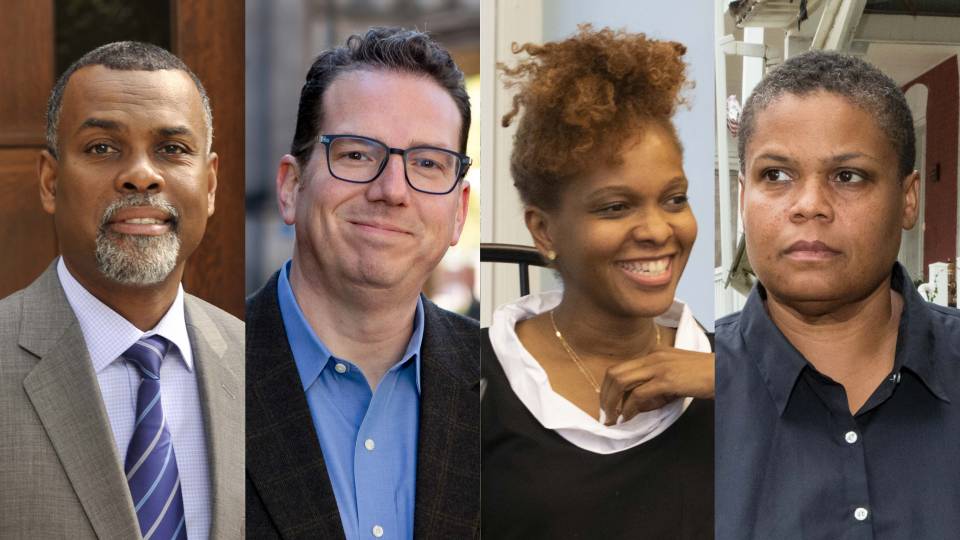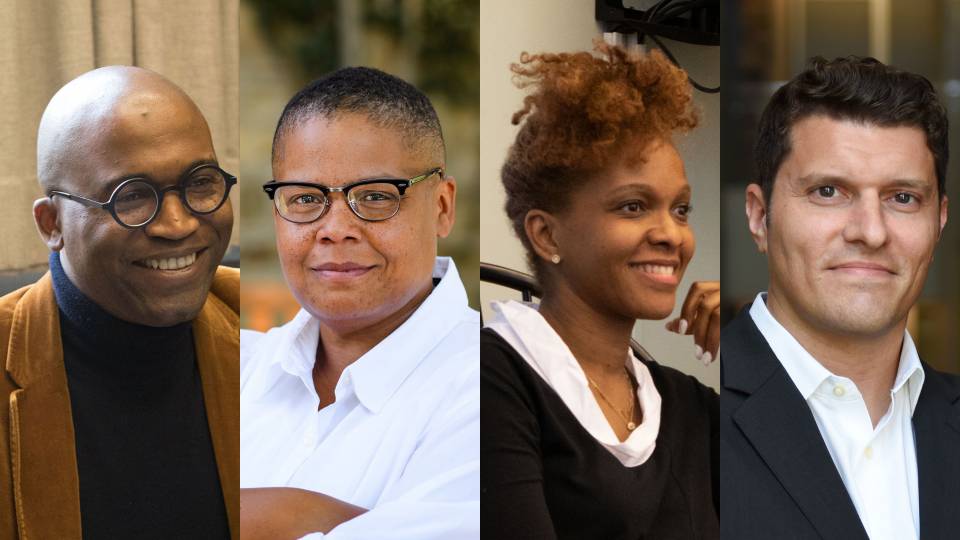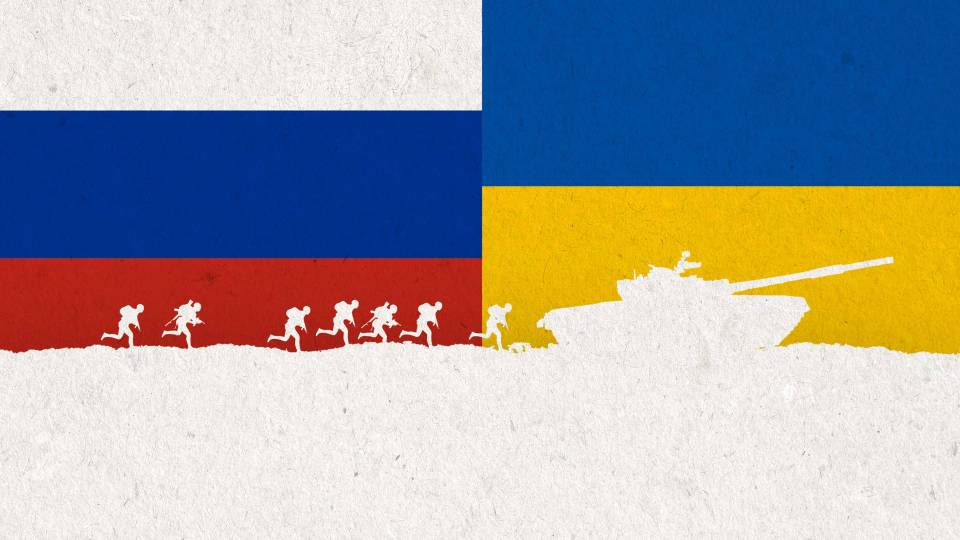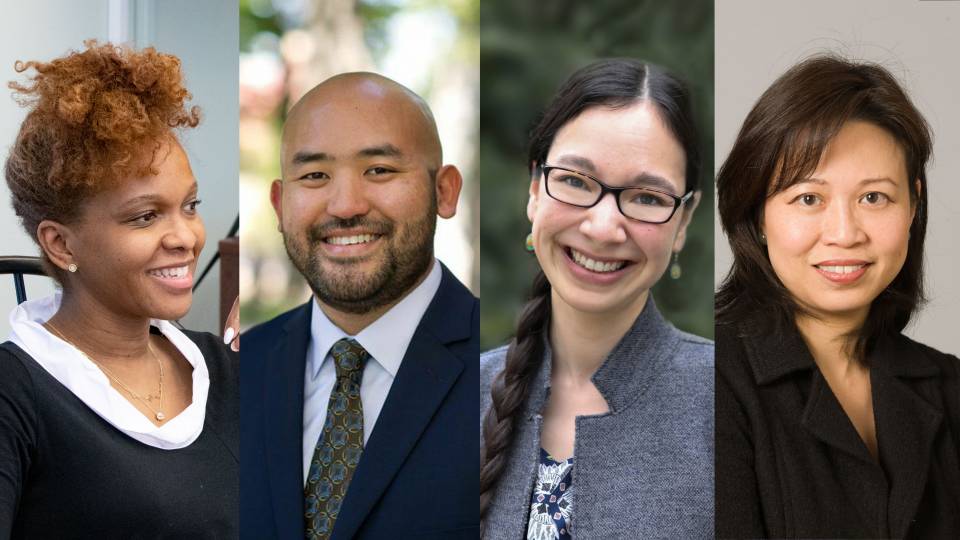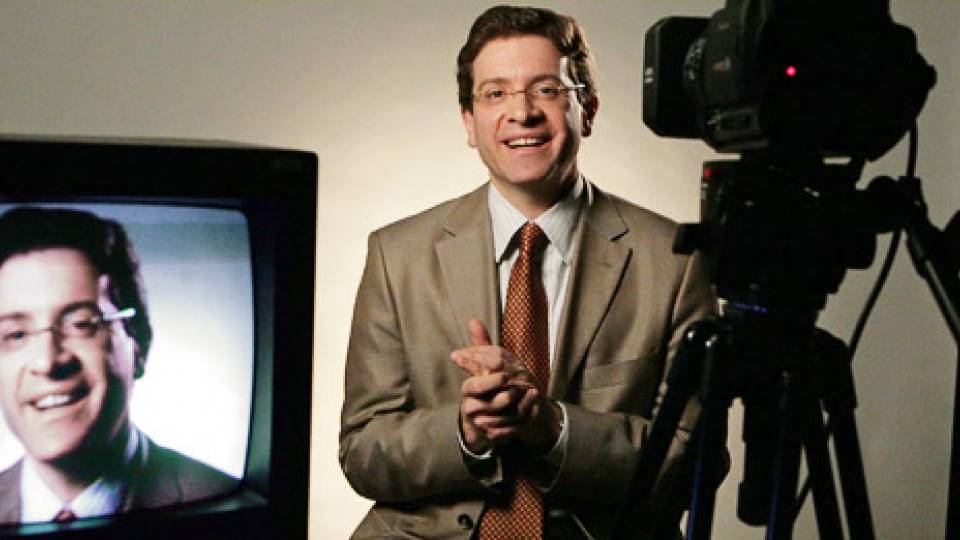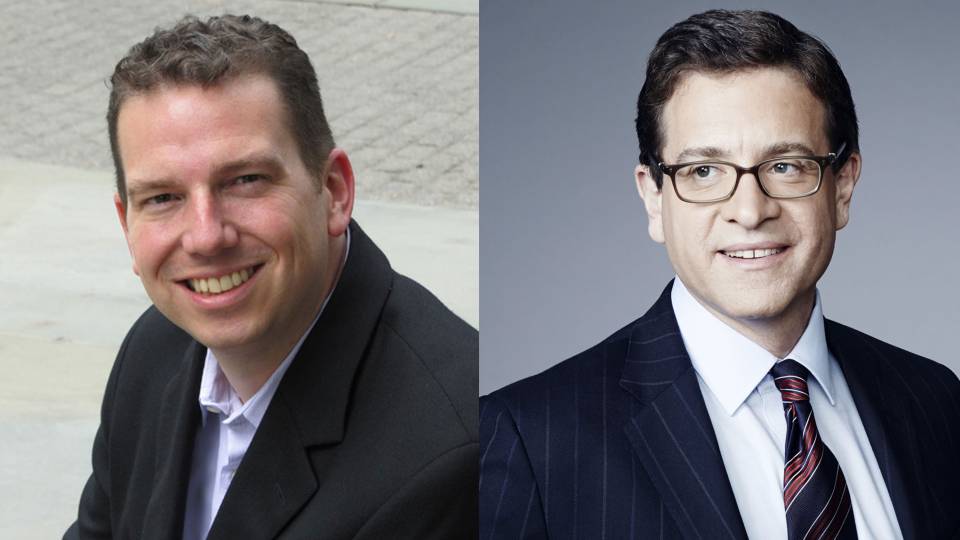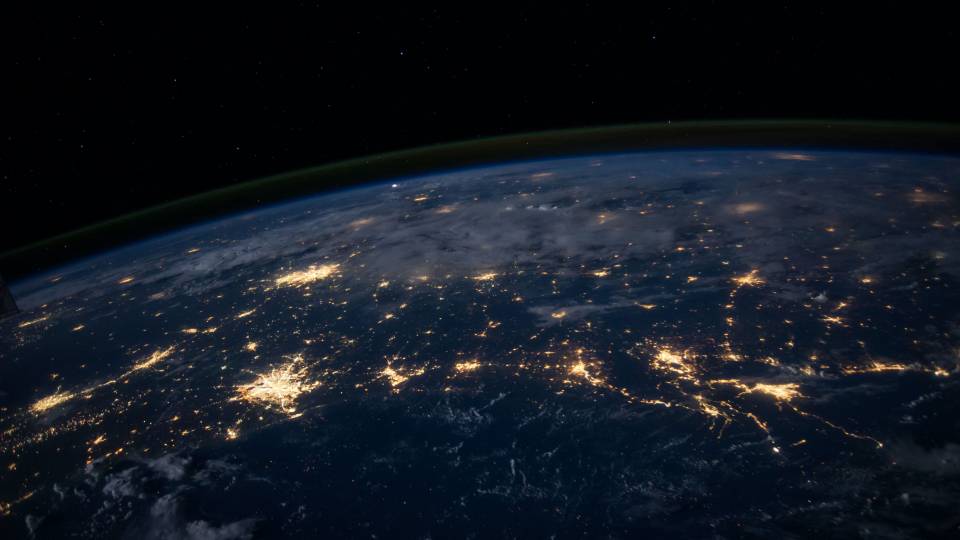As the United States grapples with the aftermath of events surrounding the lawless violence in the U.S. Capitol on Jan. 6, several Princeton faculty members and alumni are using op-eds, television news programs, podcasts, online publications and social media to speak to the moment, share their expertise, and help chart a path forward for the country, drawing on their research as well as their own personal experiences.
In addition, Princeton President Christopher L. Eisgruber wrote a Jan. 6 post addressing the violence at the Capitol and the promise of the Constitution to permit us to address disagreements peacefully.
Below, you can read and listen to some of the Princeton faculty and alumni contributions to this vital national dialogue.
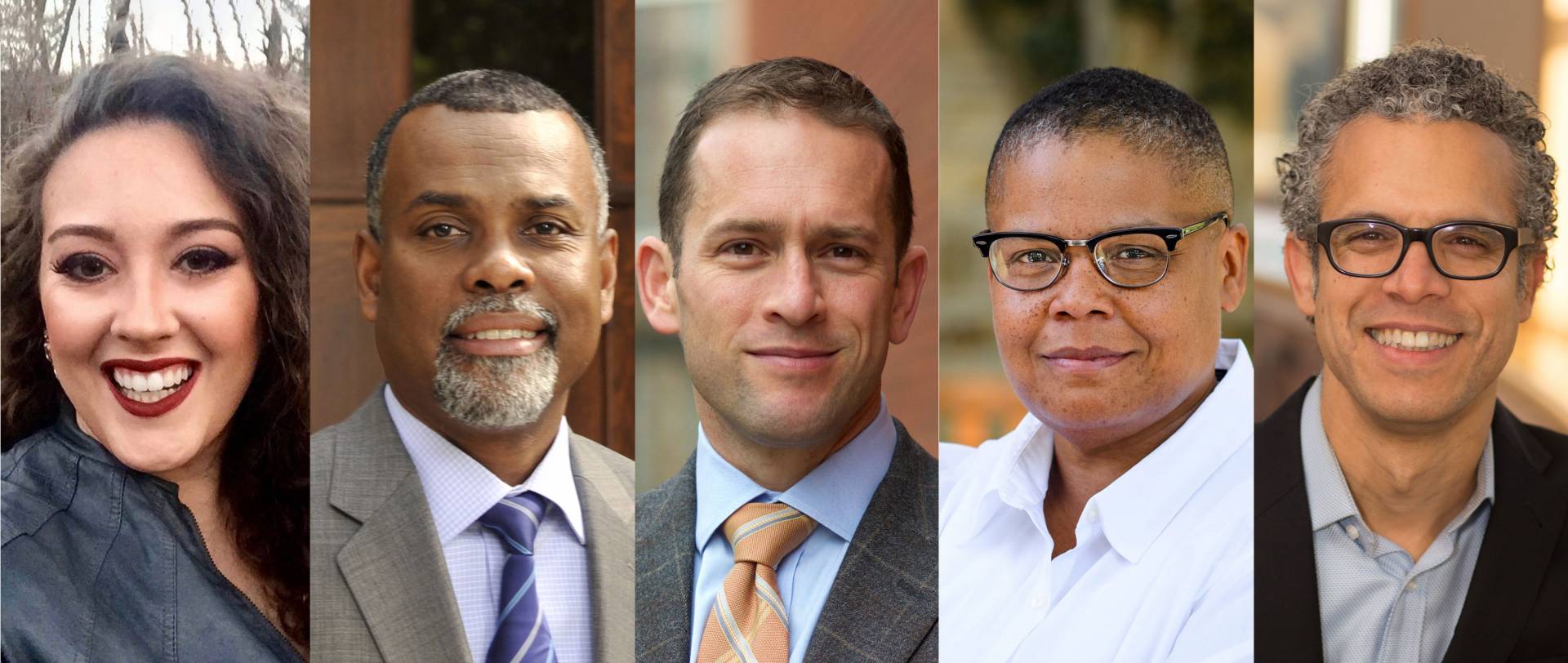
Princeton professors Rhae Lynn Barnes (left), Eddie Glaude Jr., Jacob Shapiro, Keeanga-Yamahtta Taylor and Omar Wasow
Faculty
- Rhae Lynn Barnes, assistant professor of history. Wrote the opinion piece with historian/filmmaker Keri Leigh Merritt "A Confederate flag at the Capitol summons America's demons" for CNN.com. (Editor's note: This article was turned into a lesson plan with guided discussion questions that was distributed by the New York City Department of Education to all social studies teachers; made available online through the National Humanities Center's new open-access Humanities in Class Digital Library to support teachers everywhere in holding conversations with their students following the Jan. 6 insurrection; and linked to in the NPR piece "How to talk to kids about the riots at the U.S. Capitol.")
- Laura Edwards, professor of history. Quoted in "Capitol riot images showing Confederate flag a reminder of country's darkest past" in USA Today.
- Kevin Kruse, professor of history. Quoted in "Was the assault on the Capitol really ‘unprecedented’? Historians weigh in" in National Geographic.
- Eddie Glaude Jr., the James S. McDonnell Distinguished University Professor and professor of African American Studies. Spoke on “Comparing police responses to pro-Trump mob, racial justice protests” with Noel King on NPR’s Morning Edition.
- Karl Kusserow, the John Wilmerding Curator of American Art at the Princeton University Art Museum and author of "Picturing Power: Portraiture and Its Uses in the New York Chamber of Commerce," wrote an opinion piece "Treasures of American art bear witness to a historic insurrection" explaining how, in the presence of a mob, the paintings and statues in the U.S. Capitol revealed the complexities of power and politics, in National Geographic.
- Jacob Shapiro, professor of politics and international affairs. Wrote an analysis for the Washington Post’s website concluding “Big trends in American politics are making events like the U.S. Capitol violence more likely.”
- Keeanga-Yamahtta Taylor, assistant professor of African American Studies. Interviewed for the NPR story "Some point out differences in police treatment of Capitol riot and BLM protests."
- Omar Wasow, assistant professor of politics. Wrote the opinion piece "‘This is not who we are’: Actually, the Capitol riot was quintessentially American" for the Washington Post.
- Sean Wilentz, the George Henry Davis 1886 Professor of American History and professor of history. Quoted in “Assault on Capitol was ‘lawlessness ... unleashed by the president,’ N.J. historian says” in nj.com; and wrote the political commentary piece "Lock Him Up" in Rolling Stone.
- Keith Whittington, the William Nelson Cromwell Professor of Politics. Spoke on Times Radio (UK); wrote the opinion piece “Impeach and remove” in Reason, “Counting Ballots and Stealing Elections” in Lawfare and "The conservative case for impeaching Trump now" in the Washington Post; and quoted in "President Trump is considering pardoning himself. I asked 15 experts if that's legal," in Vox.
- Lauren Wright, associate research scholar and lecturer in politics and the Princeton School of Public and International Affairs. Quoted in “Melania Trump’s chief of staff Stephanie Grisham resigns with two weeks left in the administration” in the Washington Post and in “'People are just trying to land the airplane.' White House staff packs up as Trump rages on” in Time magazine.
- Julian Zelizer, the Malcolm Stevenson Forbes, Class of 1941 Professor of History and Public Affairs. Quoted in “Trump issued a call to arms. Then he urged his followers ‘to remember this day forever!’” in the Washington Post; wrote an analysis, “Trump’s rage ignites assault on democracy,” for the Associated Press; quoted in “Trump supporters storm the Capitol” on WHYY’s Radio Times; provided commentary for "What history can tell us about the Capitol siege" on WCBS radio.
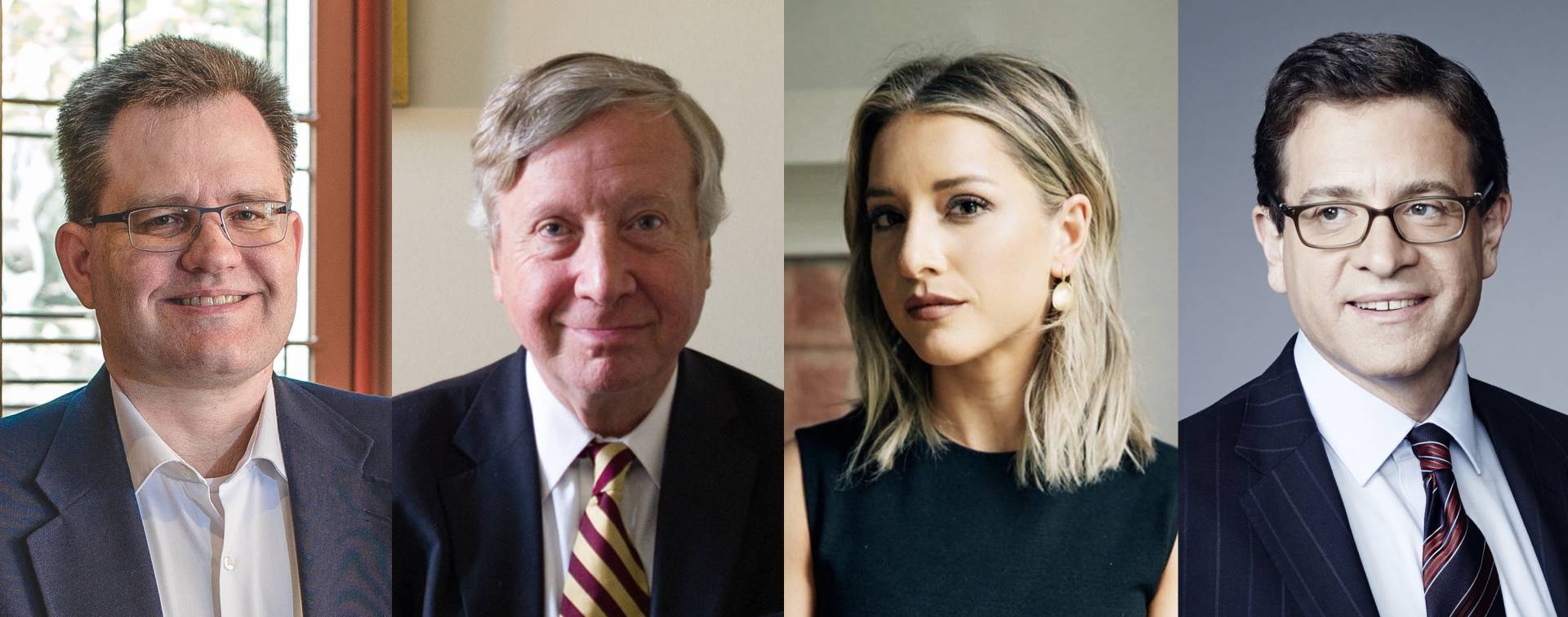
Princeton professors Keith Whittington (left), Sean Wilentz, Lauren Wright and Julian Zelizer
Alumni
- Asha Rangappa, Class of 1996, former FBI agent and senior lecturer at Yale University. Quoted in "President Trump is considering pardoning himself. I asked 15 experts if that's legal" in Vox.
